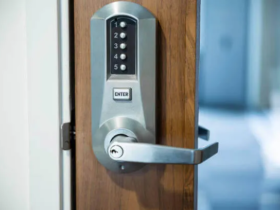Living with or caring for someone who is struggling with addiction can feel like a never-ending roller coaster ride. In all of this, keeping up with your mental health can be very tough since it’s loaded up with eccentric twists and turns. Note that, setting healthy boundaries and keeping your mental health a priority are pivotal tools needed to effectively navigate this turbulent landscape.
Why Do Boundaries Matter?
Boundaries aren’t necessarily about moving away from your loved one; they are all about laying out solid limits and expectations. They give a reasonable comprehension of what is acceptable and an unacceptable behavior, cultivating a more adjusted and sustained relationship.Here are a some key advantages of defining limits while dealing with Addiction:
- Anxiety and stress reduction:The emotional burden of feeling responsible for someone else’s addiction can be significantly reduced by knowing where you stand and what you are willing to tolerate.
- Protection from manipulation:Addiction can be manipulative, and clear limits go about as a safeguard against guilt trips and emotional blackmails.
- Further improved communication:Transparent communication becomes feasible when expectations are plainly defined, prompting an additional helpful and supportive dynamic.
- Prioritization of self-care: Defining limits permits you to make space for your own necessities and well-being,ensuring you have the energy and emotional strength to help your loved one.
Steps to Building Solid Boundaries
Laying out effective boundaries is a cycle, not a one-time occasion. Here are a different steps to see you through;
- Distinguish your needs and limits: Understand the behavior that causes you stress, hatred, or distress.
- Clearly communicate: Articulate your boundaries straightforwardly and emphatically, utilizing “I” statements and staying away from accusations.
- Be reliable and firm:Don’t relent in your authorization, even despite strain or control. Keep in mind that consistency is key.
- Lay good focus on your behavior: You can’t control what your loved one does, but you can control how you feel. Decide not to take part in enabling behaviors.
- Seek assistance: Always surround yourself with understanding people who can offer emotional help and guidance.

Protecting Your Mental Health
Protecting your mental health is just as important as setting boundaries. Here are some fundamental self-care practices you should utilize today;
- Take part in activities you enjoy: Set aside a few minutes for hobbies, exercise, and relaxation procedures that give you pleasure and help you de-stress.
- Seek professional assistance: Opting for the services of a professional counseling can provide significant tools needed to overseeing pressure, adapting to difficult emotions, and creating sound survival strategies.
- Join a support group: Interacting with other people who understand what is happening can offer significant support, encouragement, and a sense of belonging.
- Concentrate on what you can control: Try not to harp on what you can’t change. Instead, place more focus on your own thoughts, feelings, and actions.
- Practice self-compassion: Be thoughtful and understanding towards yourself. Recognize the difficulties you face and praise your victories, regardless of how little.
Always Remember that You’re Not Alone;
It can be extremely challenging to provide addiction support, but it is essential to keep in mind that you are not alone. Various assets and emotionally supportive networks are accessible to assist you with exploring this intricate territory. However, by defining solid limits, focusing on your own prosperity, and even going for life coaching, you can empower yourself to be a more effective and versatile emotionally supportive network for your loved one, while at the same time safeguarding your psychological and mental wellbeing.
By taking these steps, you can empower yourself and create a more positive and supportable path ahead, both for you and for your loved one.










